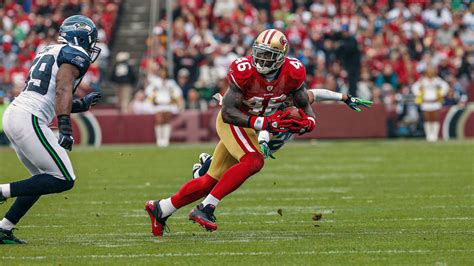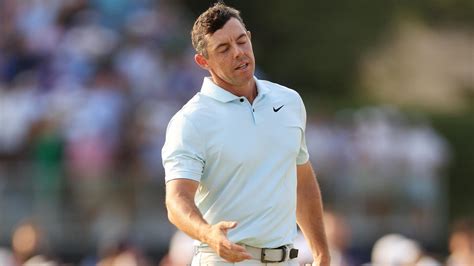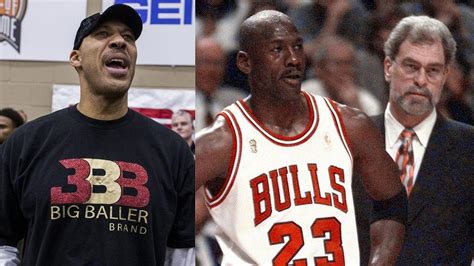
Justin Fields’ early struggles as the New York Jets’ quarterback during OTAs and minicamp are generating concern, as the former Steelers QB, now backing up Aaron Rodgers, grapples with accuracy and decision-making, raising questions about the team’s quarterback depth.
Fields’ Adjustment Period: Jets’ Backup QB Faces Early Hurdles
Justin Fields, acquired by the New York Jets this offseason, is facing a challenging adjustment period as he settles into his role as the backup quarterback to Aaron Rodgers. Fields’ performance during organized team activities (OTAs) and minicamp has raised concerns, with reports highlighting issues related to accuracy, decision-making, and overall command of the Jets’ offensive scheme. While it is still early in the offseason, these early struggles underscore the importance of the backup quarterback position and the need for Fields to quickly adapt to his new environment.
The Jets traded for Fields in March, hoping to provide a reliable and dynamic option behind Rodgers, who is returning from a torn Achilles tendon that sidelined him for the majority of the 2023 season. The team envisioned Fields as a player with starting experience who could step in and effectively lead the offense if needed. However, his initial performances have not met those expectations, prompting questions about his readiness to assume that role.
According to reports from Jets’ training sessions, Fields has struggled with the consistency of his throws, often missing targets and failing to deliver the ball accurately in various drills. Decision-making has also been a point of concern, with instances of Fields hesitating or making incorrect reads, leading to stalled drives and missed opportunities. These issues are particularly worrisome given the complexity of the Jets’ offense, which requires quick processing and precise execution.
“He’s got a lot of talent, he’s got a lot of upside, but he’s still learning the offense,” said one source close to the Jets’ coaching staff. “It’s going to take some time for him to get comfortable and confident in what he’s doing.”
The Jets’ coaching staff is aware of Fields’ struggles and is working closely with him to address the issues. Quarterbacks coach Tony O’Neil is providing Fields with extra attention, focusing on refining his mechanics, improving his accuracy, and helping him grasp the nuances of the Jets’ playbook. The team is also emphasizing film study, encouraging Fields to analyze his mistakes and learn from his experiences.
“We’re not putting any undue pressure on him,” said Head Coach Robert Saleh. “We understand that it’s a process, and we’re going to give him the time and support he needs to develop.”
Despite the challenges, the Jets remain optimistic about Fields’ potential. The team believes that his athleticism, arm strength, and previous starting experience make him a valuable asset. However, they acknowledge that he needs to make significant progress in the coming weeks and months to become a reliable backup quarterback.
The pressure on Fields is amplified by the uncertainty surrounding Rodgers’ health. While Rodgers is making progress in his recovery, there is no guarantee that he will be fully ready for the start of the season. If Rodgers is unable to play, the Jets would be forced to turn to Fields, making his development a critical priority.
Background on Justin Fields
Justin Fields entered the NFL with considerable hype, selected as the 11th overall pick by the Chicago Bears in the 2021 NFL Draft. Fields was a highly touted prospect coming out of Ohio State University, where he showcased his dual-threat abilities as a passer and a runner. He was expected to be the Bears’ franchise quarterback, leading the team to long-term success.
However, Fields’ tenure in Chicago was marked by inconsistency and struggles. While he displayed flashes of brilliance, he often struggled with accuracy, decision-making, and taking sacks. The Bears’ offensive line was also a constant problem, hindering Fields’ ability to effectively operate the offense. In his three seasons with the Bears, Fields had a record of 10-28 as a starter, with a completion percentage of 60.3%, 6,674 passing yards, 40 touchdown passes, and 30 interceptions. He also rushed for 2,220 yards and 14 touchdowns.
Despite his struggles in Chicago, Fields’ athleticism and potential remained intriguing to other teams. The Jets, seeking a reliable backup quarterback with starting experience, saw Fields as a worthwhile acquisition. The team believed that a change of scenery and a more stable environment could help Fields unlock his potential.
Impact on the Jets’ Quarterback Situation
The Jets’ quarterback situation is complex and closely scrutinized, given Rodgers’ age and injury history. The team’s decision to acquire Fields was viewed as a smart move, providing insurance in case Rodgers were to suffer another injury or be unable to perform at his previous level. However, Fields’ early struggles have raised doubts about his ability to effectively fill that role.
If Fields is unable to develop into a reliable backup, the Jets may need to explore other options. The team could consider signing a veteran free agent or trading for another quarterback. However, finding a suitable replacement with the necessary experience and skill set could be challenging.
The Jets’ success in the upcoming season hinges heavily on the quarterback position. If Rodgers is healthy and performs at a high level, the team has a legitimate chance to compete for a Super Bowl. However, if Rodgers is sidelined or struggles, the Jets will need a capable backup to step in and lead the offense.
Fields’ development is therefore crucial to the Jets’ overall success. The team is investing time and resources into helping him improve, but ultimately, it will be up to Fields to seize the opportunity and prove that he can be a valuable asset to the Jets.
Analysis of Fields’ Struggles
Several factors may be contributing to Fields’ struggles during OTAs and minicamp. First, he is learning a new offensive system. The Jets’ playbook is different from what he ran in Chicago, requiring him to master new terminology, concepts, and reads. This learning process takes time and can be challenging, especially for a quarterback who is already under pressure to perform.
Second, Fields is adjusting to a new team and coaching staff. Building rapport with his teammates and coaches is essential for effective communication and execution on the field. This process also takes time and can be difficult, especially when a player is trying to prove himself in a new environment.
Third, Fields may be feeling the pressure of expectations. The Jets traded for him to be a reliable backup quarterback, and he is aware that his performance will be closely scrutinized. This pressure can sometimes lead to hesitation, mistakes, and a lack of confidence.
Finally, it is important to remember that OTAs and minicamp are just the beginning of the offseason. Fields has plenty of time to improve and develop before the start of the regular season. The Jets’ coaching staff is committed to helping him reach his potential, and Fields himself is determined to prove that he can be a valuable asset to the team.
Rodgers’ Recovery and its Impact
Aaron Rodgers’ recovery from his Achilles tendon tear remains a significant factor in the Jets’ quarterback situation. The team is cautiously optimistic about his progress, but there is still uncertainty about his availability for the start of the season. If Rodgers is unable to play, the Jets would be forced to rely on Fields, making his development even more critical.
Rodgers has been actively participating in team activities, including throwing drills and light workouts. He has expressed confidence in his recovery and has stated that he is determined to be ready for Week 1. However, the Jets are taking a cautious approach, recognizing the importance of not rushing him back too soon.
“Aaron is making great progress, but we’re not going to put him in any situations where he could potentially re-injure himself,” said Saleh. “We’re going to listen to the doctors and take things one step at a time.”
The Jets have a bye in Week 5, and that extra week could be crucial for Rodgers’ recovery. The team may decide to hold him out until after the bye, giving him additional time to heal and prepare. In that scenario, Fields would likely be the starting quarterback for the first four games of the season.
Possible Solutions and Paths Forward
Addressing Fields’ early struggles requires a multifaceted approach from both the player and the coaching staff. Here are several potential solutions and paths forward:
- Focused Coaching and Mentorship: The Jets’ coaching staff, particularly quarterbacks coach Tony O’Neil, needs to continue providing Fields with focused coaching and mentorship. This includes working on his mechanics, improving his accuracy, and helping him grasp the nuances of the Jets’ playbook. Regular film study sessions should be conducted to analyze his mistakes and identify areas for improvement.
- Simplified Playbook: To alleviate some of the pressure on Fields, the Jets could consider simplifying the playbook, especially during the early part of the season. This would allow him to focus on a smaller set of plays and concepts, increasing his confidence and reducing the likelihood of mistakes.
- Building Rapport with Receivers: Fields needs to develop a strong rapport with his receivers. This involves spending extra time with them after practice, working on timing, routes, and communication. The more comfortable he is with his receivers, the more confident he will be in his ability to deliver accurate passes.
- Increased Reps in Practice: Fields needs to get as many reps as possible in practice. This will help him build muscle memory, improve his decision-making, and gain confidence in his abilities. The Jets should ensure that he gets ample opportunities to work with the first-team offense, even when Rodgers is healthy.
- Veteran Guidance: The Jets could consider bringing in a veteran quarterback to serve as a mentor for Fields. This veteran could provide guidance on how to prepare for games, read defenses, and handle the pressure of playing in the NFL.
- Manage Expectations: The Jets need to manage expectations surrounding Fields. While he has potential, he is still a developing player who needs time to adjust to his new environment. The team should avoid putting too much pressure on him and instead focus on providing him with the support he needs to improve.
- Evaluate Other Options: If Fields continues to struggle, the Jets may need to evaluate other options. This could involve signing a veteran free agent, trading for another quarterback, or exploring the possibility of promoting a player from the practice squad. However, the team should give Fields every opportunity to succeed before making any drastic changes.
Comparative Analysis: Fields vs. Other Backup Quarterbacks
To provide context to Fields’ situation, it’s helpful to compare him to other backup quarterbacks in the NFL. A successful backup quarterback typically possesses the following qualities:
- Experience: Has spent several years in the league, either as a starter or a backup, and has a good understanding of NFL defenses and offensive schemes.
- Accuracy: Can consistently deliver accurate passes, even under pressure.
- Decision-Making: Makes smart decisions with the ball, avoiding turnovers and maximizing opportunities.
- Leadership: Can command the respect of his teammates and lead the offense effectively.
- Knowledge of the Playbook: Has a thorough understanding of the team’s offensive playbook and can execute it efficiently.
Compared to other backup quarterbacks, Fields has a mix of strengths and weaknesses. He has starting experience, which is a valuable asset. He also possesses exceptional athleticism and arm strength, which can create opportunities for the offense. However, he needs to improve his accuracy, decision-making, and knowledge of the Jets’ playbook to be considered a reliable backup.
Several other backup quarterbacks in the NFL have demonstrated the ability to step in and lead their teams to success. These quarterbacks include:
- Case Keenum: Has been a successful backup for several teams, including the Minnesota Vikings, where he led them to the NFC Championship Game in 2017.
- Gardner Minshew: Has shown flashes of brilliance as a backup for the Jacksonville Jaguars and the Philadelphia Eagles.
- Tyler Huntley: Has filled in admirably for Lamar Jackson with the Baltimore Ravens, demonstrating his ability to run the offense and make plays.
Fields needs to emulate the success of these quarterbacks by improving his overall game and becoming a more reliable and consistent player.
Long-Term Implications for the Jets
The long-term implications of Fields’ development extend beyond the upcoming season. If he can develop into a reliable backup, he could become a valuable asset for the Jets for years to come. He could also potentially increase his trade value, allowing the Jets to acquire additional draft picks or players in the future.
However, if Fields fails to develop, the Jets may need to re-evaluate their quarterback situation. They may need to invest in another backup quarterback or consider drafting a young quarterback to groom for the future.
The Jets’ long-term success hinges on having a stable quarterback situation. Whether that stability comes from Rodgers’ continued success or Fields’ development remains to be seen.
Conclusion: A Work in Progress
Justin Fields’ early struggles as the Jets’ backup quarterback are a reminder that development in the NFL is a continuous process. While his initial performances have raised concerns, it is important to remember that it is still early in the offseason, and he has plenty of time to improve.
The Jets’ coaching staff is committed to helping Fields reach his potential, and Fields himself is determined to prove that he can be a valuable asset to the team. The team’s success in the upcoming season hinges heavily on the quarterback position, and Fields’ development is crucial to the Jets’ overall success.
Frequently Asked Questions (FAQ)
1. Why did the Jets trade for Justin Fields?
The Jets traded for Justin Fields to provide a reliable and experienced backup quarterback behind Aaron Rodgers, who was returning from a torn Achilles tendon. The team wanted a player who could step in and lead the offense effectively if Rodgers were to suffer another injury or be unable to perform at his previous level.
2. What are the specific concerns about Justin Fields’ performance during OTAs and minicamp?
Reports have highlighted concerns regarding Fields’ accuracy, decision-making, and overall command of the Jets’ offensive scheme. He has struggled with the consistency of his throws, often missing targets, and has hesitated or made incorrect reads, leading to stalled drives and missed opportunities.
3. How is the Jets’ coaching staff addressing Justin Fields’ struggles?
The Jets’ coaching staff is working closely with Fields to address the issues. Quarterbacks coach Tony O’Neil is providing extra attention, focusing on refining his mechanics, improving his accuracy, and helping him grasp the nuances of the Jets’ playbook. The team is also emphasizing film study, encouraging Fields to analyze his mistakes and learn from his experiences.
4. What is Aaron Rodgers’ recovery status, and how does it impact the quarterback situation?
Aaron Rodgers is making progress in his recovery from a torn Achilles tendon. While he has been actively participating in team activities, there is still uncertainty about his availability for the start of the season. If Rodgers is unable to play, the Jets would be forced to rely on Fields, making his development even more critical. The Jets have a bye in Week 5 which could give Rodgers an additional week to recover.
5. What are some potential solutions to help Justin Fields improve and become a more reliable backup quarterback?
Potential solutions include focused coaching and mentorship, simplifying the playbook, building rapport with receivers, increasing reps in practice, providing veteran guidance, managing expectations, and continuously evaluating other quarterback options if needed.









